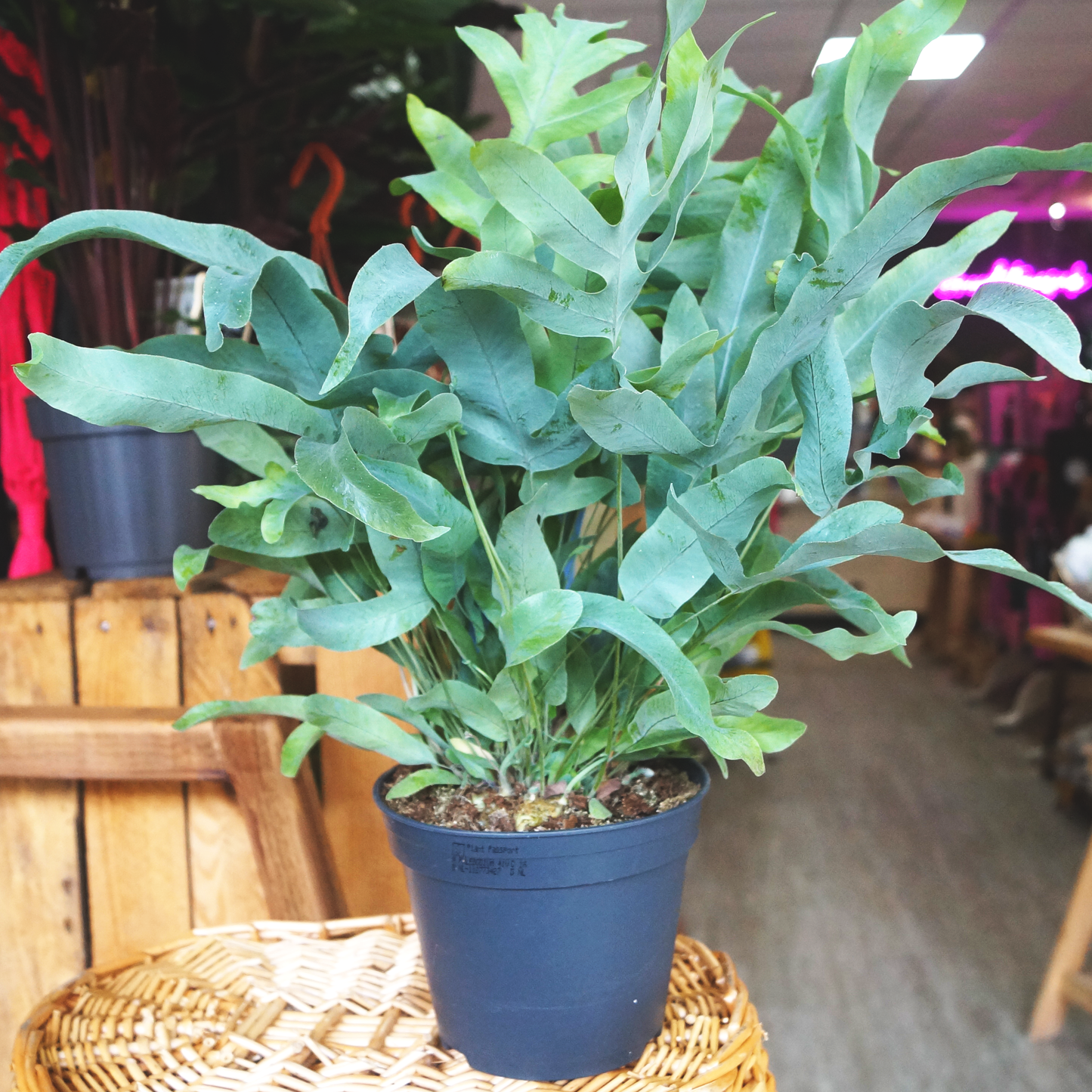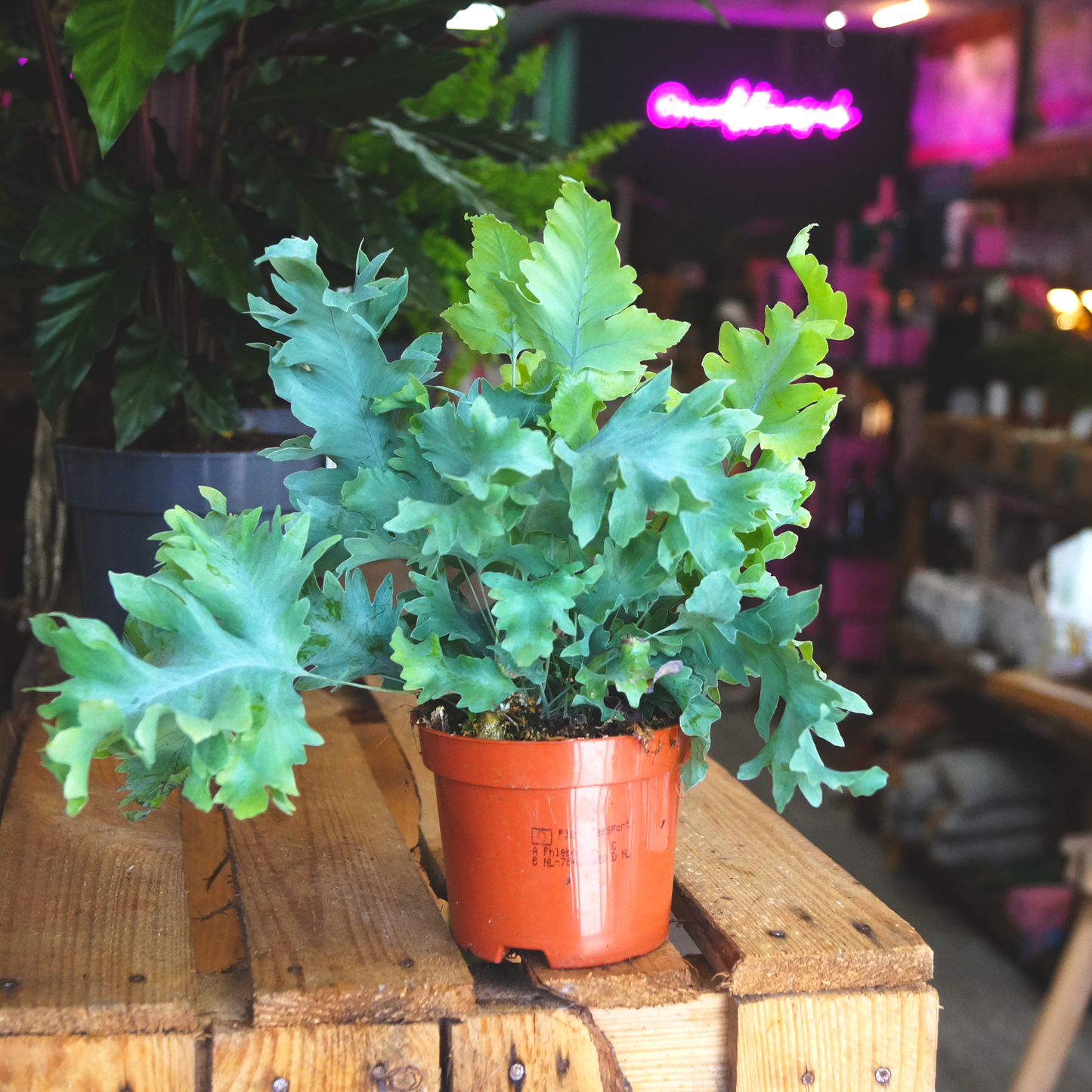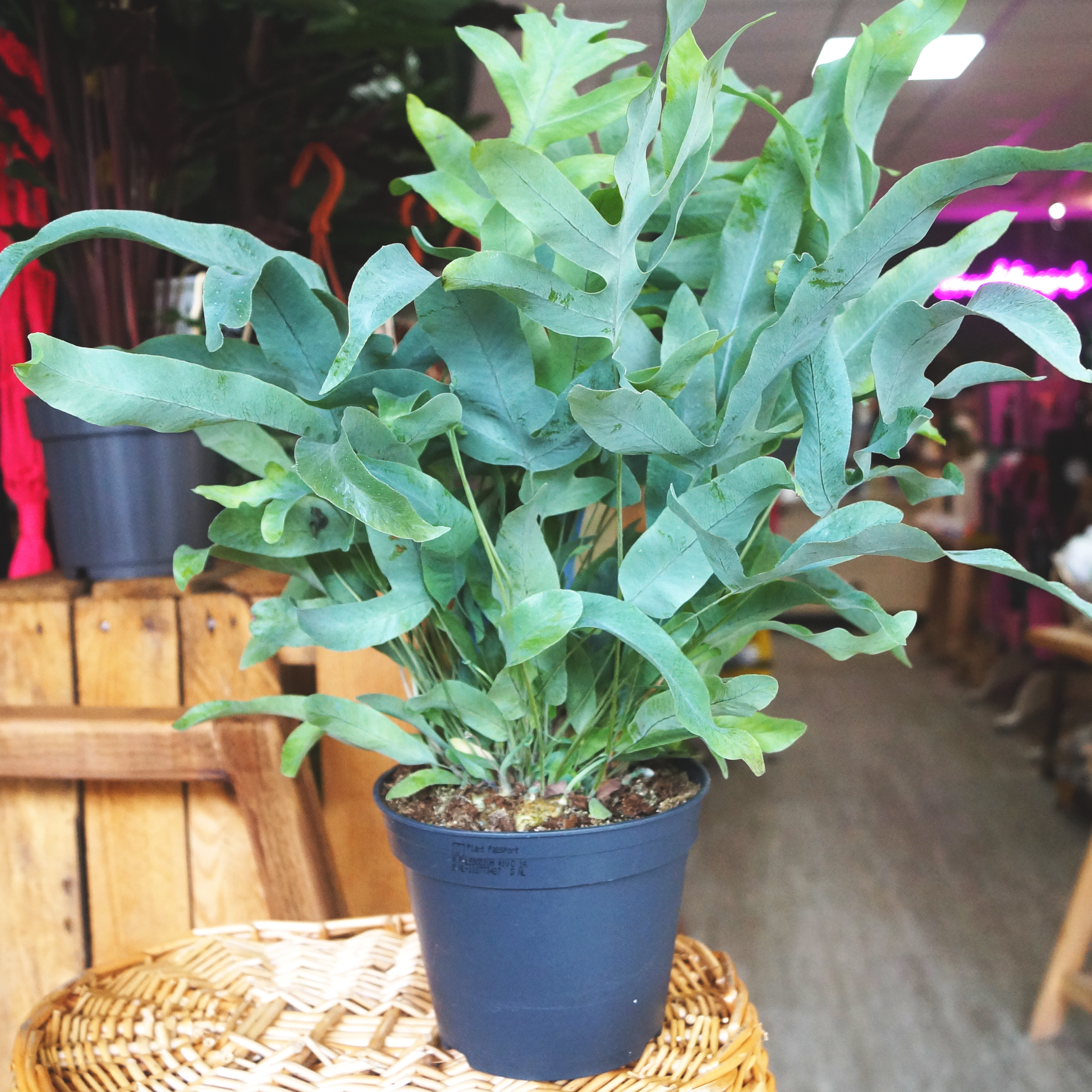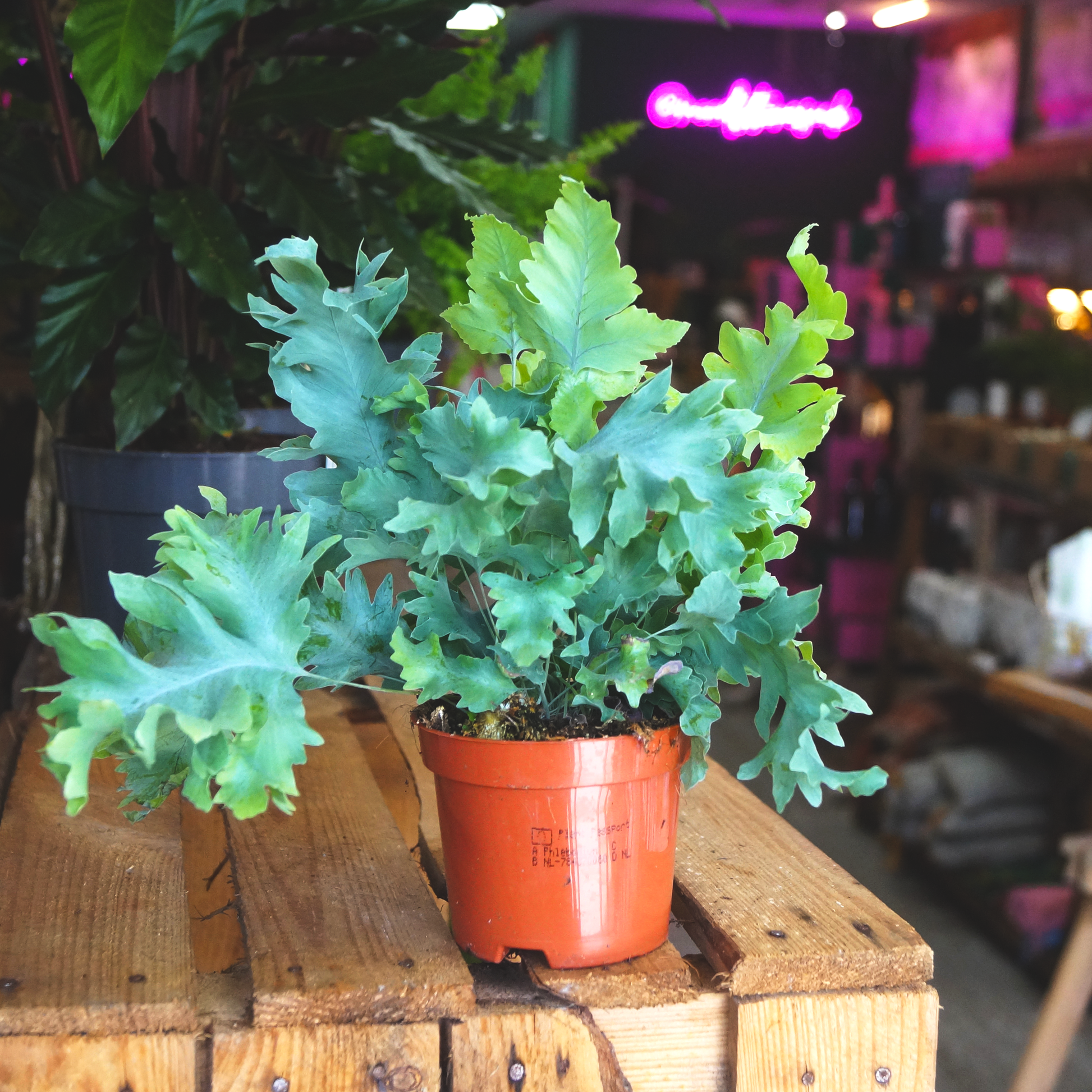NOOD Stores
Blue Star Fern
Blue Star Fern
Regular price
£7.00 GBP
Regular price
Sale price
£7.00 GBP
Unit price
per
Tax included.
Couldn't load pickup availability
Bring a touch of tropical elegance to your home with our stunning Blue Star Fern Plants, available in 12cm and 14cm diameter pots. These graceful ferns, known for their distinctive blue-green fronds and star-shaped leaflets, make a perfect addition to any indoor space.
Care Guide:
- Light: Thrives in dappled shade; avoid direct sunlight
- Water: Keep soil consistently moist; mist daily for extra humidity
- Temperature: Prefers average indoor temperatures of 18-26°C
- Feeding: Monthly during spring and summer with general houseplant food
- Non-toxic to humans and pets




